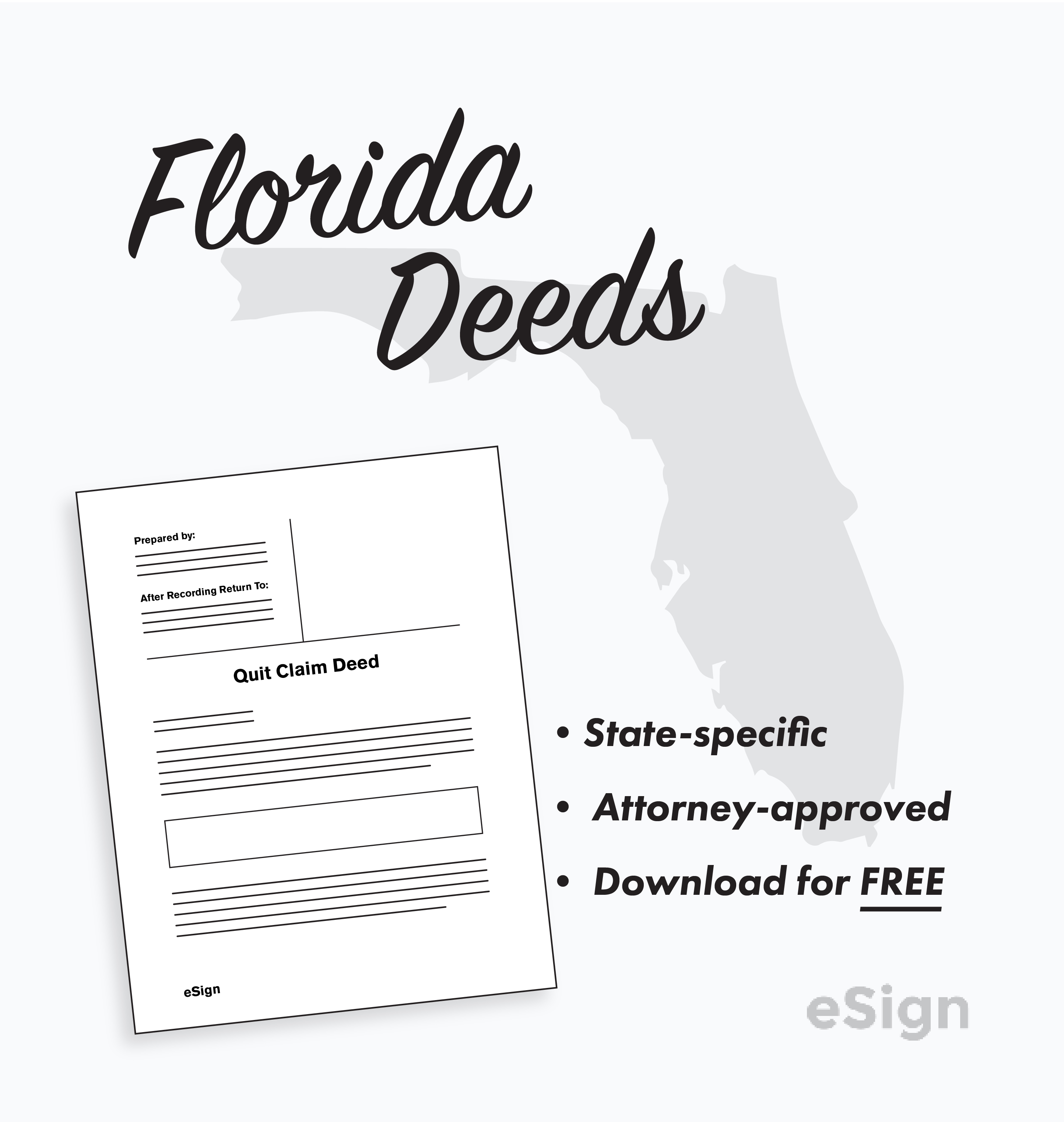By Type (4)
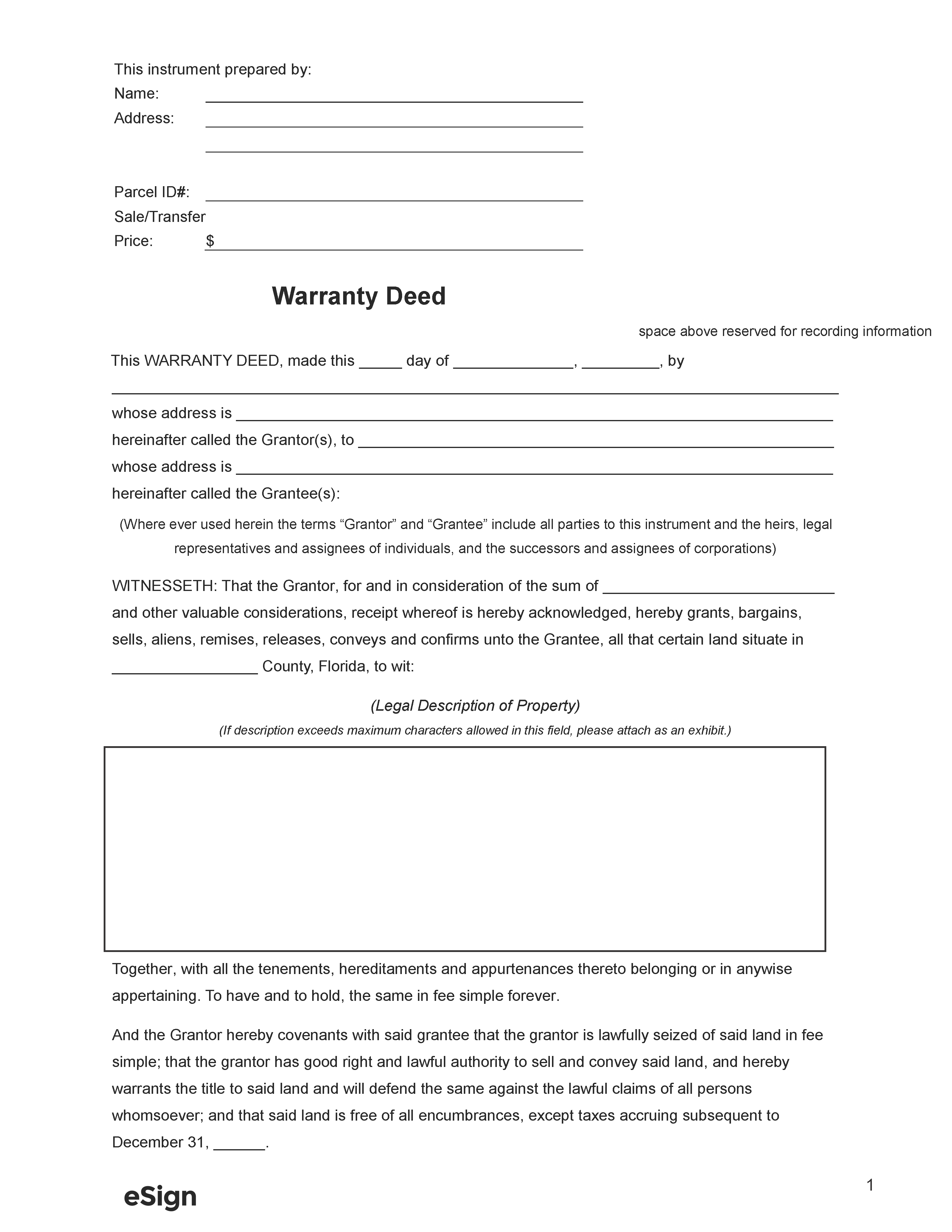 General Warranty Deed – Transfers real estate with the guarantee that there are no third-party claims whatsoever. General Warranty Deed – Transfers real estate with the guarantee that there are no third-party claims whatsoever.
Download: PDF |
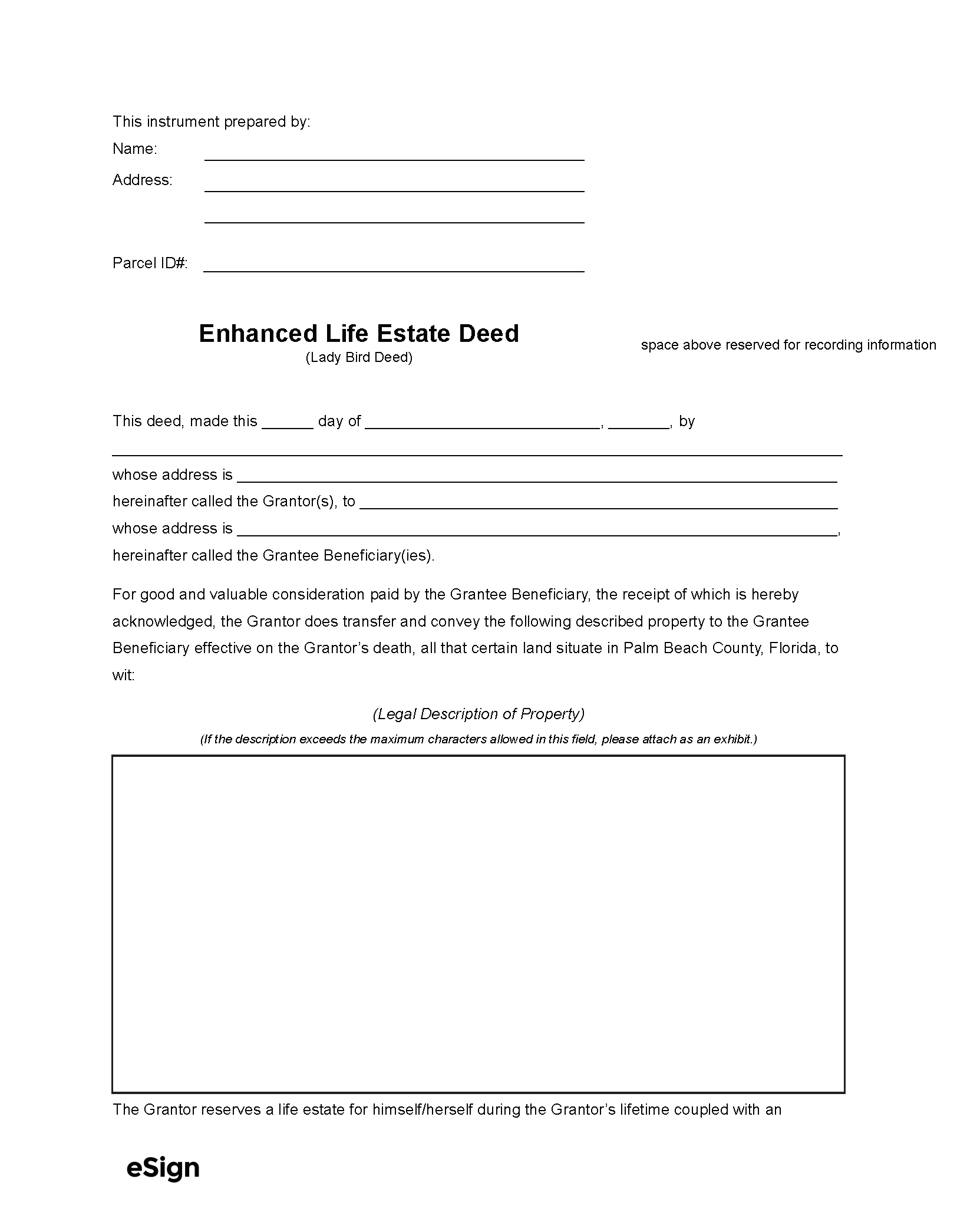 Lady Bird Deed – Allows an owner to arrange for the transfer of their property upon death to a beneficiary. Lady Bird Deed – Allows an owner to arrange for the transfer of their property upon death to a beneficiary.
Download: PDF |
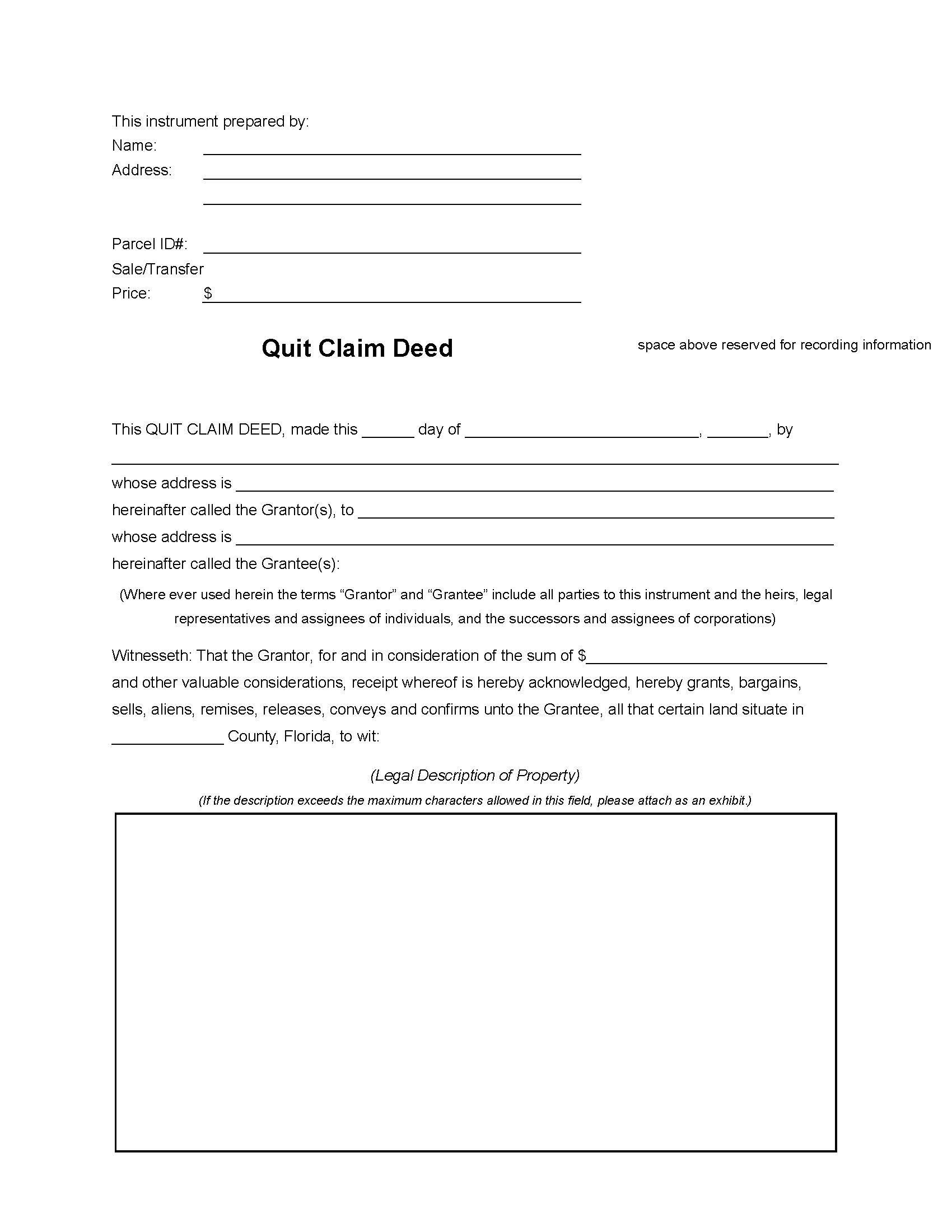 Quit Claim Deed – Used to transfer real estate between two parties without any title protection. Quit Claim Deed – Used to transfer real estate between two parties without any title protection.
Download: PDF |
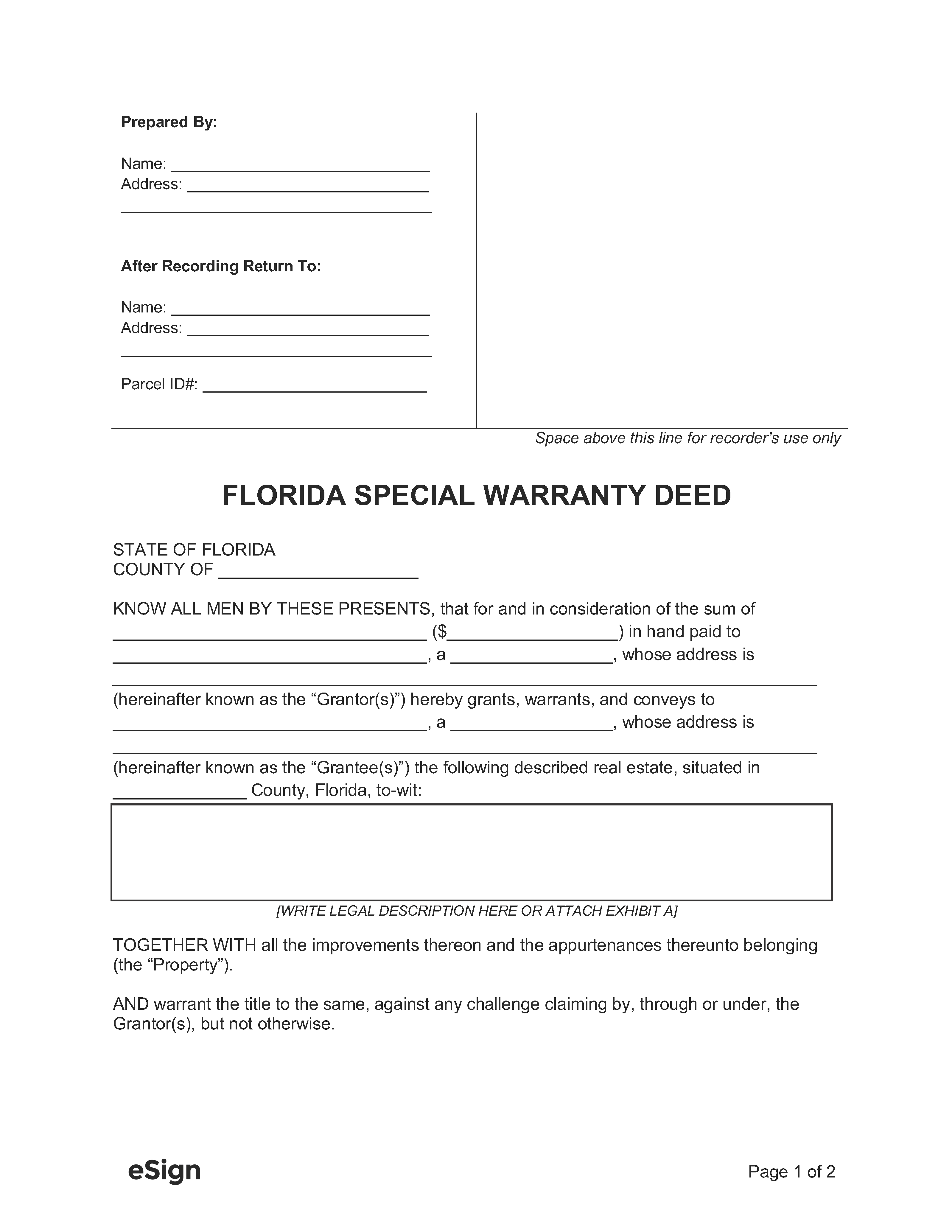 Special Warranty Deed – Guarantees that there are no encumbrances on the property from the current owner’s time as titleholder. Special Warranty Deed – Guarantees that there are no encumbrances on the property from the current owner’s time as titleholder.
|
Recording
Signing Requirements – Deeds must be signed by the grantor, a notary public, and two witnesses.[3]
Where to Record – Conveyances must be recorded with the Circuit Court to be legally valid.[4]
Cost – $10 for the first page, $8.50 for each additional page (as of this writing).[5]
